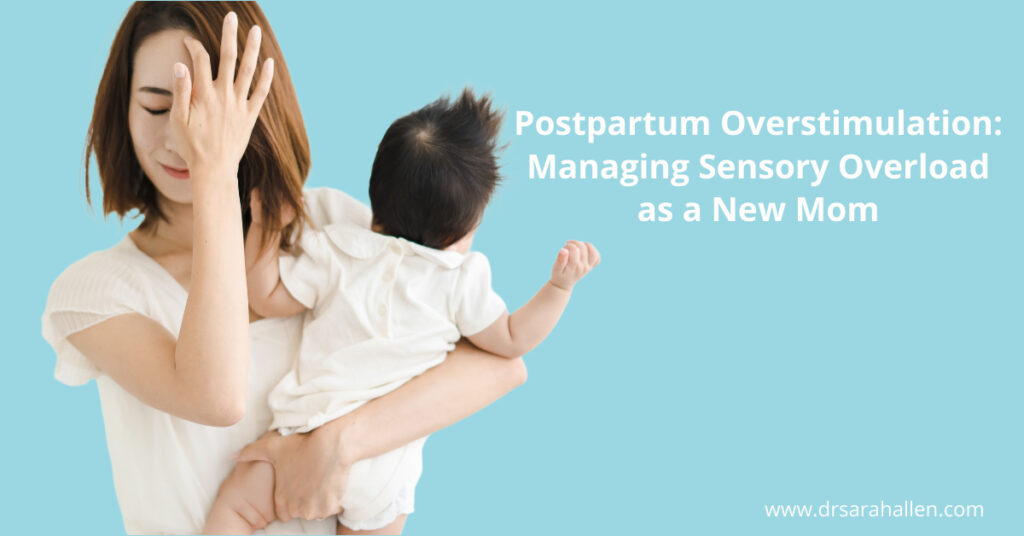
Have you heard of the 5 Love Languages by Gary Chapman? A lot of people are familiar with them in terms of improving relationships between couples. I have found that they can also be used as a simple but powerful framework for new parents to think about, and share their needs with each other to stay connected during an overwhelming time.
Let’s be frank, navigating the early days of parenthood can be difficult. As new parents, it’s easy to feel disconnected or unsure about how to best support each other. Understanding and utilizing the 5 love languages can make a big difference as it provides a simple yet effective way to connect more deeply and show appreciation in ways that truly resonate, without adding undue stress to an already busy time.
What Are the 5 Love Languages?
The 5 love languages are Words of Affirmation, Acts of Service, Receiving Gifts, Quality Time, and Physical Touch. The idea is to think about and rank the love languages in order of ones that make you feel most loved at the top. Then your partner ranks the ways they feel most loved. Finally, you share your love language preferences with each other. By knowing how your partner feels most loved enables to to show love towards them in the manner they want, not how you want.
Words of Affirmation are about expressing love through spoken words.
Acts of Service show love through helpful actions.
Receiving Gifts involves giving thoughtful items that show you care.
Quality Time focuses on spending dedicated time together.
Physical Touch involves using physical contact to express affection.
We typically show love to others in ways we would like to experience love. The ideas of the 5 Love Languages theory is that by understanding your own and your loved ones’ love languages and then showing them love in a way they want, it can foster stronger, more fulfilling relationships. Acknowledging each others’ differences can help you both to feel valued and understood.
So if you feel loved when someone makes you a meal, or brings you a cup of tea in the morning (Acts of Service) but instead they give you a hug (Physical Touch – high on their ranking, but low on yours) you won’t see this as showing love, despite their intention.
Adapting The 5 Love Language For Parents of Babies
Becoming parents introduces a whole new chapter of your relationship. Between sleepless nights, diaper changes, and endless feedings, it’s easy to feel emotionally drained or even distant from your partner. But showing and receiving love during this period is possible. The concept of the 5 love languages, introduced by Dr. Gary Chapman, is a simple, but powerful, framework for staying connected when you don’t have much energy or bandwidth.
Here’s how parents can use each love language to nurture their bond while navigating the demanding early stages of parenting.
1. Words of Affirmation
Words hold immense power, especially when you’re both exhausted and stretched thin. A simple acknowledgment can go a long way in filling your partner’s emotional cup.
- Ideas:
- Say “thank you” when your partner does something, even something small, like rocking the baby or prepping bottles.
- Leave a sticky note on their coffee cup with a quick message, like “You’re doing amazing” or “I appreciate you so much.”
- Compliment how they’re handling parenting with phrases like, “I love watching you with our baby. You’re such a wonderful parent.”
Sometimes, hearing these affirmations can be exactly what someone needs on a rough day.
2. Acts of Service
With so much to do, even the smallest act of service can feel like love in action. Taking the initiative to help out is a meaningful gesture that shows understanding and care.
- Ideas:
- Offer to take over baby duties for an hour so your partner can rest, shower, or even just scroll on their phone guilt-free.
- Make a favorite snack or prepare a meal without being asked.
- Do one task your partner normally handles, like folding the laundry or packing the diaper bag, so it’s one less thing on their plate.
Pro tip: Acts of service work best when tailored to what your partner truly needs help with, so it’s okay to ask, “What would be most helpful for you right now?”
3. Receiving Gifts
Gifts don’t have to be grand or expensive; it’s about the thoughtfulness behind them. A small token can remind your partner of your love and appreciation.
- Ideas:
- Surprise your partner with their favorite coffee or a small treat after a particularly rough night.
- Create a photo album or frame a special picture of your new family to capture a precious moment.
- Buy something small but meaningful, like a cozy throw blanket for those late-night feeds or a book by their favorite author.
These thoughtful gestures speak volumes without saying a word.
4. Quality Time
Time together feels like a luxury during the newborn stage, but carving out even a few minutes makes a world of difference. It’s about being present with each other, even in the chaos.
- Ideas:
- Schedule an “at-home coffee date” while the baby naps. Sit down together, even for just 20 minutes, to chat about something other than parenting.
- Take a stroller walk together as a family to reconnect and enjoy each other’s company.
- Designate one evening a week as “couch time.” Once the baby is down, cuddle up on the sofa, watch a show, or just talk about non-baby things.
It’s about quality over quantity. Intentional moments, no matter how brief, reinforce your partnership.
5. Physical Touch
Amid constant multitasking, don’t overlook the comforting power of touch to reconnect with your partner. Physical touch fosters intimacy and reminds both of you that you’re in this together.
- Ideas:
- Hold hands during a walk with the baby or while sitting together on the couch.
- Exchange back rubs or gentle massages to ease tension after long days (and nights).
- Steal a hug or a quick kiss in the kitchen or as one of you passes the other the burp cloth.
Remember, physical touch isn’t always about grand romantic gestures. The small moments of connection matter just as much. It is also important to note that parents, especially moms, can feel “touched out” and overstimulated. If they don’t want any physical intimacy, don’t take it personally.
Final Thoughts On Postpartum Love Languages
Parenthood will test your relationship, but it can also strengthen it. By leaning into each other’s love languages, it is possible to feel more connected, supported, and understood.
Which love language resonates most with you and your partner? It’s okay if they evolve as your parenting roles shift. What matters most is showing up, in whatever way feels meaningful.
If you’re wondering where to start, have a conversation with your partner about what they value most. Even this small step can deepen your bond.
To view a quiz that helps you identify what your love languages are Click Here. Print out a copy for each of you and then share your results to aid a good conversation about what each of you need and can do for each other during this busy time, and into the future….
Parenting a new baby is tough and if one, or both parents are experiencing postpartum anxiety or depression, it can be even more difficult. I have many years of experience working with parents as they navigate the postpartum period and I am here to help. Please reach out if you are experiencing any difficulties as we can all benefit from knowledgeable support during major life transitions. I see clients in person in my Northbrook, Chicago North Shore office or remotely across IL, FL and the UK.

Dr. Sarah Allen has 25+ years of experience in private practice helping women to transition to being the mom they want to be. She is the Founding Director of the statewide non-profit Postpartum Depression Alliance of IL. She also specializes in pregnancy loss & infertility & has published research on postpartum depression and traumatic childbirth.
If you would like to work with Sarah, please phone her at 847 791-7722 or on the form below.
If you would like to read more about me and my areas of specialty, please visit Dr. Sarah Allen Bio. Dr. Allen’s professional license only allows her to work with clients who live in IL & FL & the UK and unfortunately does not allow her to give personalized advice via email to people who are not her clients.
Dr. Allen sees clients in person in her Northbrook, IL office or remotely via video or phone.

What Can I Read That Helps Me While I Am Waiting For My First Appointment With Sarah?
If you feel that you may be experiencing pregnancy or postpartum mood disorder, or worry that you may be at risk of developing it, please download my free booklets below.
See each specific webpage to download one or many.





































